
The Heartbeat of Steel City: Downtown Pittsburgh
Downtown Pittsburgh, the vibrant core of the Steel City, offers a dynamic blend of historic charm and modern energy. Nestled at the confluence of the Allegheny, Monongahela, and Ohio rivers, this area is a bustling hub of activity, making it a must-visit destination for tourists. The skyline, punctuated by iconic skyscrapers, reflects Pittsburgh's rich industrial past while embracing its progressive present. Visitors can explore an array of cultural attractions, including world-class theaters, museums, and galleries. The Cultural District is a highlight, where you can catch a Broadway show or visit the Pittsburgh Symphony Orchestra. For history enthusiasts, the Fort Pitt Museum provides fascinating insights into the city's role in early American history. Food lovers will delight in the diverse culinary scene. From upscale dining to food trucks, Downtown Pittsburgh offers a rich tapestry of flavors. Market Square is a popular spot, bustling with restaurants, cafes, and seasonal events. Shoppers will also find plenty to enjoy, from unique boutiques to major retail outlets. The neighborhood is pedestrian-friendly, with many attractions within walking distance. Public art installations and scenic riverfront parks add to the area's charm, providing perfect spots for relaxation or a leisurely stroll. Whether you're here for a day or a week, Downtown Pittsburgh promises an unforgettable experience.
Local tips in Downtown Pittsburgh
- Wear comfortable shoes as Downtown Pittsburgh is best explored on foot.
- Visit Market Square for a taste of local cuisine and lively atmosphere.
- Take advantage of the public transit system for easy access to surrounding neighborhoods.
- Check out the events calendar for the Cultural District to catch a show or concert.
- Don't miss the scenic views from Point State Park, especially at sunset.
The Heartbeat of Steel City: Downtown Pittsburgh
Downtown Pittsburgh, the vibrant core of the Steel City, offers a dynamic blend of historic charm and modern energy. Nestled at the confluence of the Allegheny, Monongahela, and Ohio rivers, this area is a bustling hub of activity, making it a must-visit destination for tourists. The skyline, punctuated by iconic skyscrapers, reflects Pittsburgh's rich industrial past while embracing its progressive present. Visitors can explore an array of cultural attractions, including world-class theaters, museums, and galleries. The Cultural District is a highlight, where you can catch a Broadway show or visit the Pittsburgh Symphony Orchestra. For history enthusiasts, the Fort Pitt Museum provides fascinating insights into the city's role in early American history. Food lovers will delight in the diverse culinary scene. From upscale dining to food trucks, Downtown Pittsburgh offers a rich tapestry of flavors. Market Square is a popular spot, bustling with restaurants, cafes, and seasonal events. Shoppers will also find plenty to enjoy, from unique boutiques to major retail outlets. The neighborhood is pedestrian-friendly, with many attractions within walking distance. Public art installations and scenic riverfront parks add to the area's charm, providing perfect spots for relaxation or a leisurely stroll. Whether you're here for a day or a week, Downtown Pittsburgh promises an unforgettable experience.
Iconic landmarks you can’t miss
Market Square
Experience the vibrant culture and rich history of Market Square, Pittsburgh's iconic hub for dining, shopping, and entertainment.
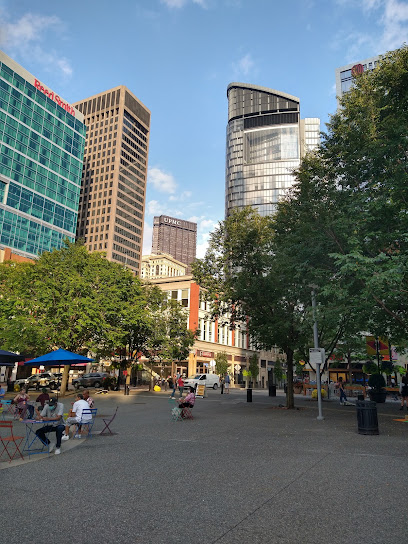
Mellon Square
Experience the tranquility of Mellon Square, a beautiful urban park in downtown Pittsburgh, where art meets nature in a vibrant community setting.
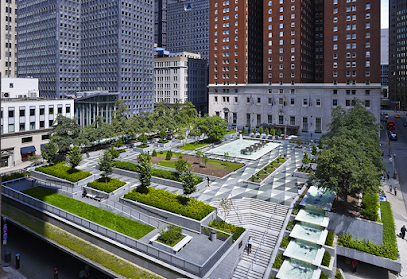
Fourth Avenue Historic District
Explore the Fourth Avenue Historic District, a captivating blend of architectural beauty and vibrant culture in downtown Pittsburgh.
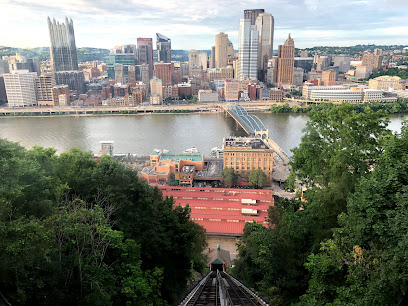
Fort Duquesne
Discover Fort Duquesne, a historic landmark in Pittsburgh, where rich history meets stunning riverside views along the Three Rivers Heritage Trail.
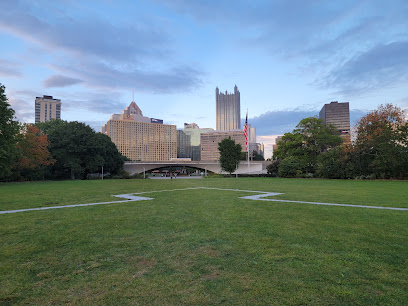
Fort Pitt Block House
Explore the Fort Pitt Block House, Pittsburgh's oldest structure, and immerse yourself in the rich history of this iconic landmark in the heart of the city.
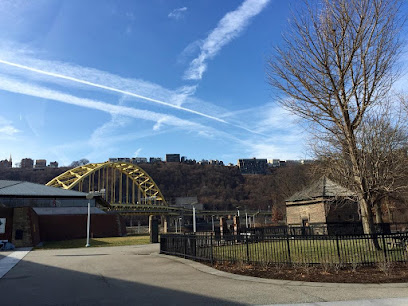
Gulf Tower
Explore the Gulf Tower, an iconic art deco skyscraper in Pittsburgh's skyline, rich in history and architectural beauty.
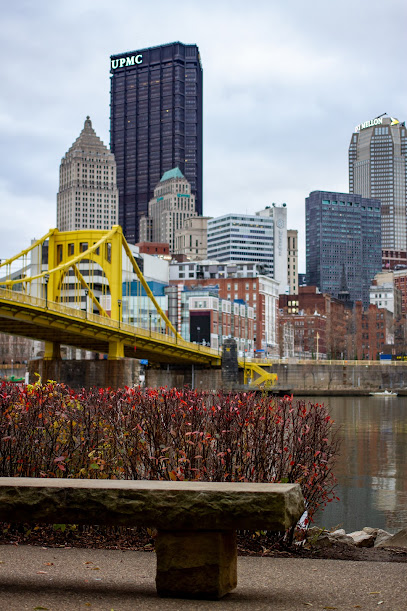
The Landmarks Building
Explore the Landmarks Building: A stunning historical landmark in Pittsburgh, offering rich architecture and scenic views of the iconic Smithfield St Bridge.
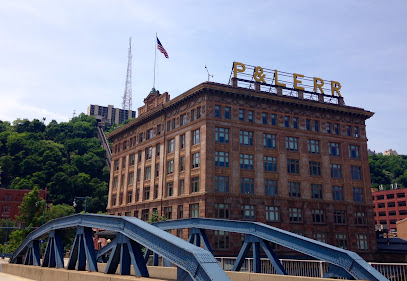
The Pittsburgh Agreement
Explore the Pittsburgh Agreement, a historical landmark emblematic of unity and cultural collaboration in the heart of Pittsburgh, Pennsylvania.
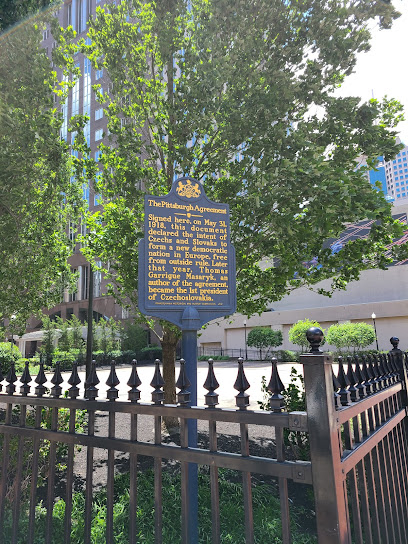
Byrnes & Kiefer Building Historical Landmark
Explore the rich history of Pittsburgh at the Byrnes & Kiefer Building, a stunning architectural landmark in the heart of the Strip District.
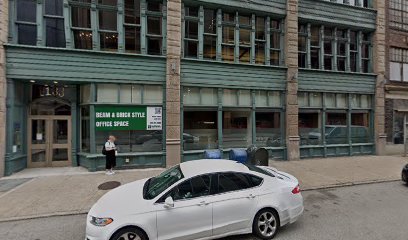
Unmissable attractions to see
Market Square
Explore Market Square, Pittsburgh's historic landmark, filled with dining, shopping, and cultural experiences in the heart of downtown.
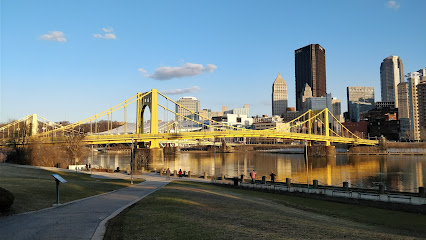
Point State Park Fountain
Discover the iconic Point State Park Fountain in Pittsburgh, a stunning symbol of the city’s rivers and rich historical heritage.
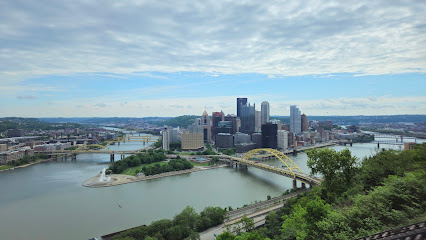
Fort Pitt Museum
Discover the rich tapestry of American history at Fort Pitt Museum, where the past comes alive in the heart of Pittsburgh's scenic Point State Park.
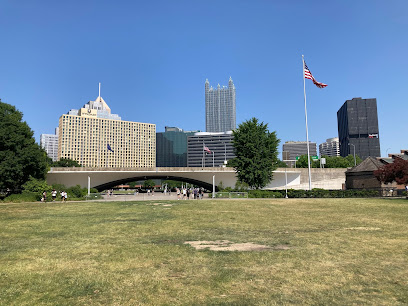
Firstside Park
Discover tranquility in the heart of Pittsburgh at Firstside Park, an urban oasis perfect for relaxation and outdoor activities.
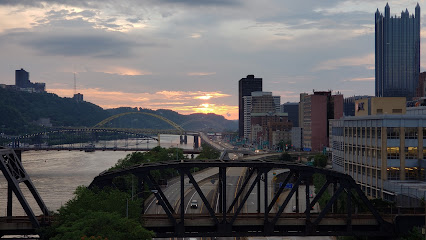
Fort Pitt Block House
Explore the Fort Pitt Block House, a historic landmark in Pittsburgh, where history, architecture, and education come together in a captivating experience.
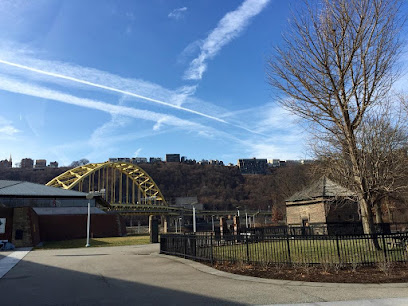
Essential places to dine
Sienna Mercato
Experience authentic Italian cuisine at Sienna Mercato in Downtown Pittsburgh - where every meal feels like a celebration.
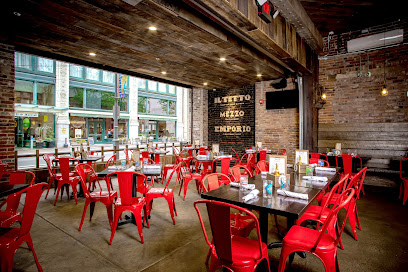
Meat & Potatoes
Experience the best of Pittsburgh dining at Meat & Potatoes - where comfort food meets gourmet flair in an inviting gastropub atmosphere.
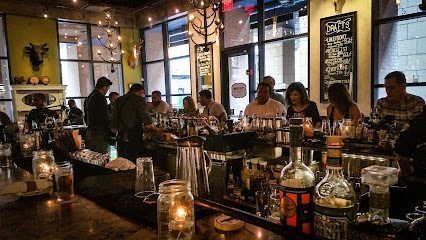
Proper Brick Oven & Tap Room
Discover artisan pizzas and craft brews at Proper Brick Oven & Tap Room - where flavor meets fun in downtown Pittsburgh.
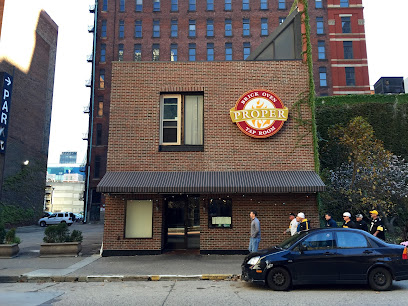
The Commoner
Discover The Commoner in Downtown Pittsburgh - where American cuisine meets innovative flavors in a lively gastropub setting.
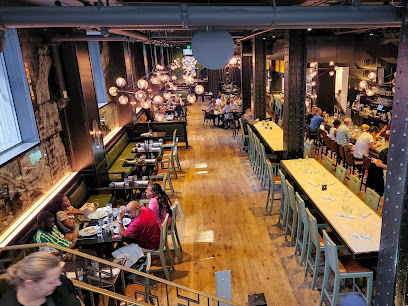
The Capital Grille
Discover luxury dining at The Capital Grille in Pittsburgh - where exquisite steaks meet fine wines in an elegant atmosphere.
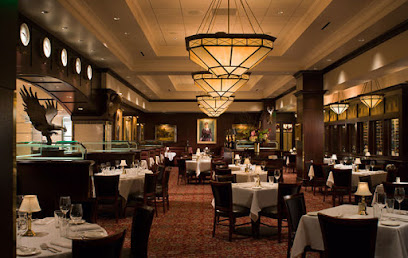
täkō
Discover Täkō in Pittsburgh - where innovative tacos meet vibrant cocktails for an unforgettable dining experience.
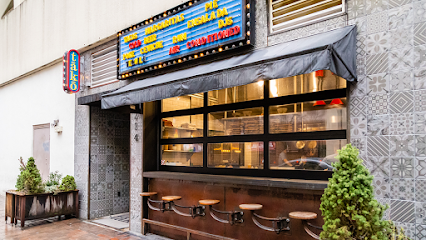
Bae Bae's Kitchen
Experience the vibrant fusion of flavors at Bae Bae's Kitchen in Downtown Pittsburgh - where tradition meets innovation.
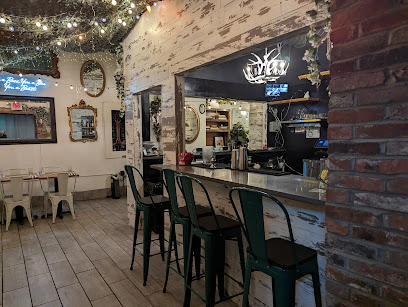
The Eagle - Pittsburgh
Experience Pittsburgh's vibrant culinary scene at The Eagle, where delicious chicken dishes meet an inviting bar atmosphere.
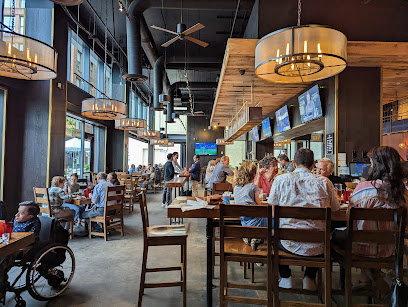
fl.2 Modern American
Experience modern American dining at its finest with artisanal cocktails and locally sourced dishes in downtown Pittsburgh.
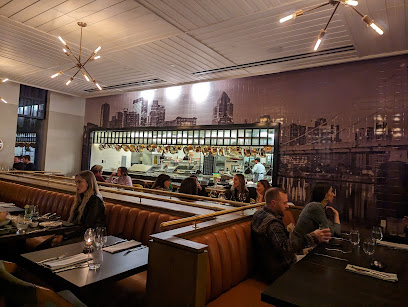
Braddock's Rebellion
Discover Braddock's Rebellion: A premier American restaurant in downtown Pittsburgh offering innovative dishes and an inviting bar atmosphere.
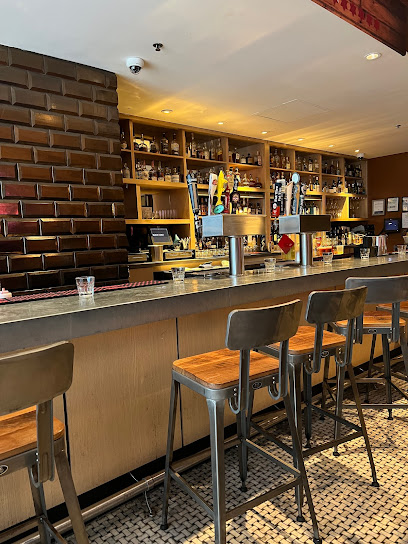
Markets, malls and hidden boutiques
Laurie's Hallmark Shop
Explore Laurie's Hallmark Shop in Pittsburgh for unique gifts, greeting cards, and festive decorations that capture the spirit of any celebration.
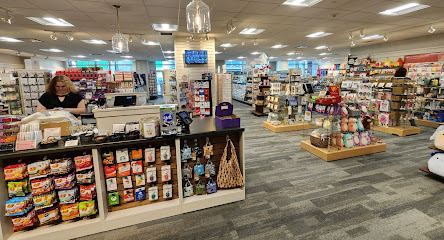
Steel City
Explore Steel City for a unique shopping experience in Pittsburgh, featuring stylish men's and women's clothing that celebrates local culture.
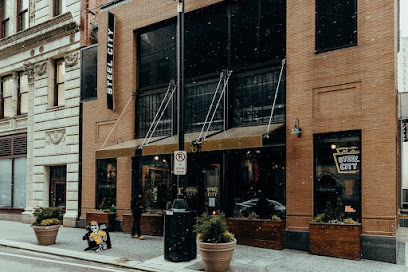
S.W. Randall Toyes & Giftes
Explore S.W. Randall Toyes & Giftes, a whimsical toy store in Downtown Pittsburgh, offering unique gifts and toys for all ages.
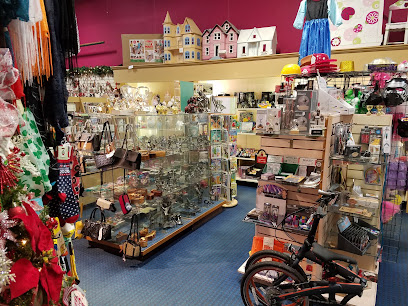
Social Status
Explore trendy apparel and accessories at Social Status, a must-visit clothing store in Downtown Pittsburgh, offering a unique shopping experience.
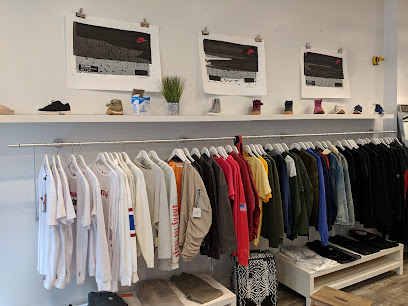
Boutique La Passerelle
Explore Boutique La Passerelle in Downtown Pittsburgh for unique women's fashion that blends local artistry with contemporary style.
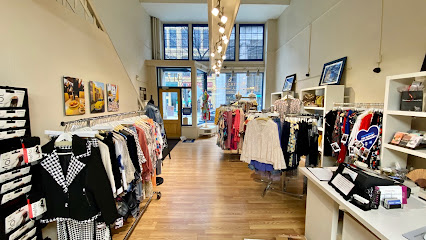
Fresh Nostalgia
Discover Fresh Nostalgia in Downtown Pittsburgh – Your destination for trendy women's clothing and personalized shopping experiences.
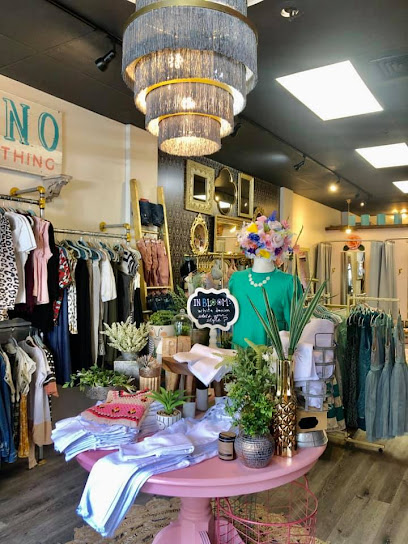
love, Pittsburgh
Experience the heart of Pittsburgh through unique gifts and locally crafted treasures at Love, Pittsburgh in the Strip District.
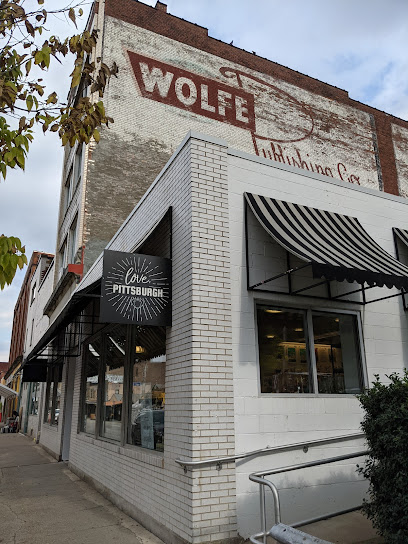
love,
Explore 'love,' a unique boutique in Downtown Pittsburgh offering stylish clothing and accessories for every fashion enthusiast.
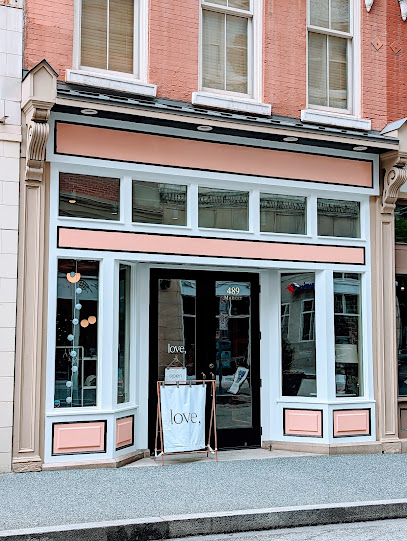
306 Forbes Boutique
Explore 306 Forbes Boutique for a unique shopping experience in Downtown Pittsburgh, showcasing local fashion and distinctive finds in a warm atmosphere.
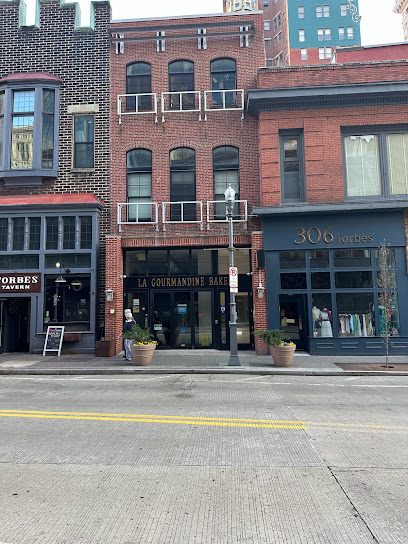
Essential bars & hidden hideouts
Howl at the Moon Pittsburgh
Discover the electrifying nightlife at Howl at the Moon Pittsburgh, where live music, delicious cocktails, and unforgettable memories await.
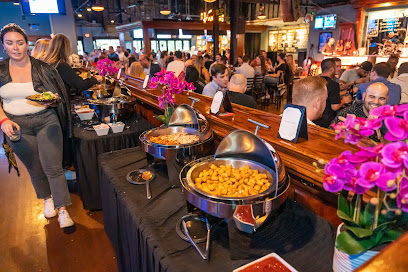
The Warren Bar & Burrow
Discover The Warren Bar & Burrow in Downtown Pittsburgh – a vibrant cocktail bar with an eclectic menu of drinks and delicious food.
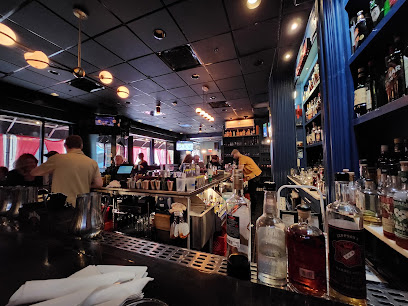
Bridges & Bourbon
Discover Bridges & Bourbon in Pittsburgh: A perfect blend of exquisite cocktails and American cuisine in a chic setting.
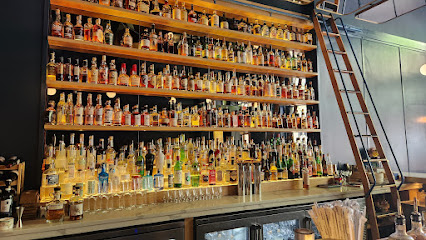
Olive Or Twist
Discover Olive Or Twist in Downtown Pittsburgh – a premier American restaurant and cocktail bar that offers unforgettable dining and nightlife experiences.
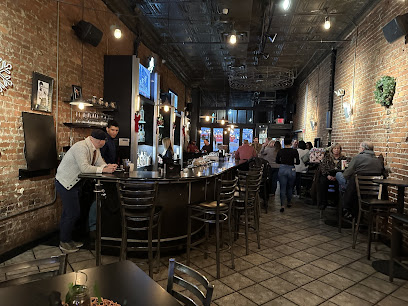
Forbes Tavern
Experience the heart of Pittsburgh at Forbes Tavern, where American cuisine meets vibrant nightlife in a welcoming atmosphere.
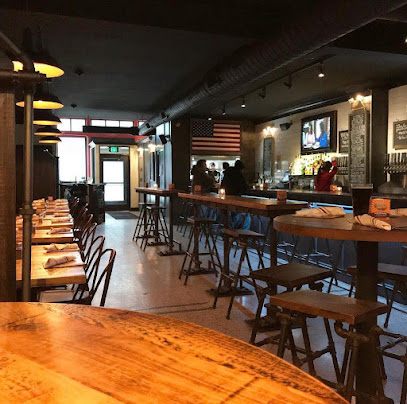
The Standard Market & Pint House
Discover the lively ambiance and diverse menu at The Standard Market & Pint House, a unique blend of bar, restaurant, and coffee shop in downtown Pittsburgh.
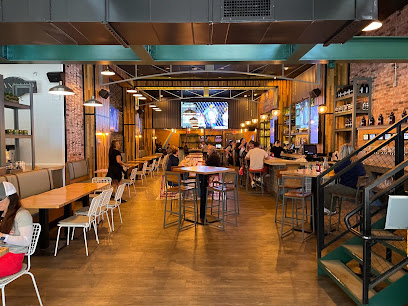
The Speakeasy
Discover the charm of The Speakeasy, a historic bar and lounge in Pittsburgh offering exquisite cocktails and a taste of local cuisine.

Penn Society
Discover the vibrant nightlife at Penn Society, a unique lounge and event venue in Downtown Pittsburgh, perfect for relaxing and socializing.
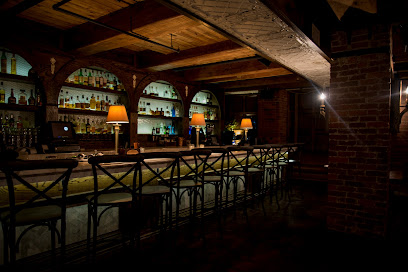
Space Bar
Experience a cosmic cocktail adventure at Space Bar, Pittsburgh's unique sci-fi themed bar offering imaginative drinks in a stellar atmosphere.
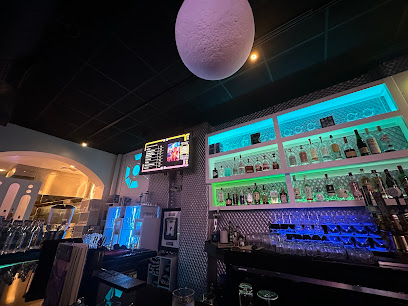
Market Street Wine Bar
Discover the charm of Market Street Wine Bar in Pittsburgh, where exquisite wines meet a cozy ambiance for an unforgettable experience.
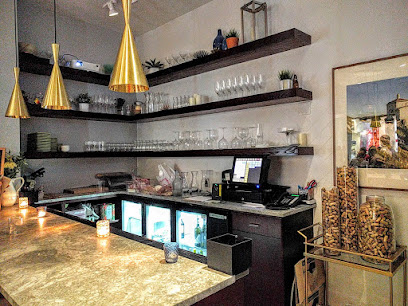
Local Phrases
-
- HelloYinz
[yinz] - GoodbyeSee ya
[see ya] - YesYah
[yah] - NoNah
[nah] - Please/You're welcomePlease/N'at
[please/n'at] - Thank youThanks a bunch
[thanks a bunch] - Excuse me/SorryPardon me
[pardon me] - How are you?How's it goin'?
[how's it goin'] - Fine. And you?A'right. How 'bout you?
[a'right. how 'bout you?] - Do you speak English?Yinz speak English?
[yinz speak english?] - I don't understandI ain't gettin' it
[i ain't gettin' it]
- HelloYinz
-
- I'd like to see the menu, pleaseCan I see the menu, please?
[can i see the menu, please?] - I don't eat meatI don't eat meat
[i don't eat meat] - Cheers!Cheers!
[cheers!] - I would like to pay, pleaseCan I pay, please?
[can i pay, please?]
- I'd like to see the menu, pleaseCan I see the menu, please?
-
- Help!Help!
[help!] - Go away!Git outta here!
[git outta here!] - Call the Police!Call the cops!
[call the cops!] - Call a doctor!Call a doc!
[call a doc!] - I'm lostI'm turned around
[i'm turned around] - I'm illI'm not feelin' good
[i'm not feelin' good]
- Help!Help!
-
- I'd like to buy...I wanna buy...
[i wanna buy...] - I'm just lookingJus' lookin'
[jus' lookin'] - How much is it?How much 'r they?
[how much 'r they?] - That's too expensiveThat's too much
[that's too much] - Can you lower the price?Can ya do any better?
[can ya do any better?]
- I'd like to buy...I wanna buy...
-
- What time is it?What time is it?
[what time is it?] - It's one o'clockIt's one o'clock
[it's one o'clock] - Half past (10)Half past ten
[half past ten] - MorningMornin'
[mornin'] - AfternoonAfternoon
[afternoon] - EveningEvenin'
[evenin'] - YesterdayYest'day
[yest'day] - TodayToday
[today] - TomorrowTomorra
[tomorra] - 1One
[one] - 2Two
[two] - 3Three
[three] - 4Four
[four] - 5Five
[five] - 6Six
[six] - 7Seven
[seven] - 8Eight
[eight] - 9Nine
[nine] - 10Ten
[ten]
- What time is it?What time is it?
-
- Where's a/the...?Where's a/the...?
[where's a/the...?] - What's the address?What's the address?
[what's the address?] - Can you show me (on the map)?Can you show me (on the map)?
[can you show me (on the map)?] - When's the next (bus)?When's the next (bus)?
[when's the next (bus)?] - A ticket (to ....)A ticket (to ....)
[a ticket (to ....)]
- Where's a/the...?Where's a/the...?
History of Downtown Pittsburgh
-
Downtown Pittsburgh's history began with the confluence of the Allegheny and Monongahela Rivers, where the settlement was formally established in 1758 by General John Forbes. The area was originally inhabited by Indigenous peoples, notably the Shawnee and Iroquois nations, before European colonization. The strategic location made it a critical military outpost during the French and Indian War.
-
The late 19th century marked a significant turning point for Downtown Pittsburgh as it transformed into an industrial powerhouse. With the establishment of steel mills and factories, the city became synonymous with steel production, earning the nickname 'Steel City.' The Homestead Strike of 1892, a pivotal labor dispute, occurred at the nearby Carnegie Steel Company's Homestead Works, highlighting the intense struggles between labor and management.
-
During the early 20th century, Downtown Pittsburgh experienced significant urban development, spurred by the influx of immigrants from Europe. The area saw the construction of iconic buildings such as the Allegheny County Courthouse and the Frick Building. This period also marked the Great Migration, as African Americans moved from the South to Pittsburgh, contributing to the city’s cultural tapestry and labor force.
-
The latter half of the 20th century brought economic decline to Downtown Pittsburgh as the steel industry faced challenges, leading to factory closures and job losses. However, the 1980s and 1990s saw a renaissance in the area, with efforts to redevelop the urban landscape, including the construction of the PPG Place and the revitalization of Point State Park, celebrating the city’s history and natural beauty.
-
Today, Downtown Pittsburgh serves as a cultural hub, home to the Cultural District, which features theaters, art galleries, and the renowned Pittsburgh Symphony Orchestra. The area also hosts annual events such as the Three Rivers Arts Festival, highlighting the city’s commitment to arts and culture. Downtown remains a blend of historic significance and modern urban life, reflecting Pittsburgh's ongoing evolution.
Downtown Pittsburgh Essentials
-
Downtown Pittsburgh is easily accessible from various neighborhoods within the city. The Port Authority of Allegheny County operates an extensive bus network that connects most areas to Downtown. The 'T' light rail system also serves several key neighborhoods, including South Side, Station Square, and the North Shore, making it a convenient option. If you're arriving by train, Amtrak provides services to the nearby Union Station. For those flying in, Pittsburgh International Airport is approximately 20 miles away, with shuttle services and taxis available to reach Downtown.
-
Downtown Pittsburgh is pedestrian-friendly, making it easy to explore on foot. The Port Authority's buses and light rail (the 'T') are reliable for longer distances. Biking is also popular, with bike lanes and rental services available through programs like Healthy Ride. Ride-sharing services like Uber and Lyft operate in the area, providing additional convenience for getting around.
-
Downtown Pittsburgh is generally safe for tourists, but standard precautions should be taken. Areas like the Strip District and parts of the North Side can experience higher crime rates, particularly after dark. Always stay aware of your surroundings, avoid poorly lit areas at night, and keep your belongings secure, especially in crowded places.
-
In case of an emergency, dial 911 for police, fire, or medical assistance. Hospitals such as UPMC Mercy and Allegheny General Hospital are located nearby for urgent care. It's advisable to carry a small medical kit and know the locations of local pharmacies for minor health issues.
-
Fashion: Do dress comfortably and casually, especially during warmer months. Don't wear overly formal attire unless attending a specific event. Religion: Do respect local customs, especially when visiting religious sites like the Cathedral of Learning. Public Transport: Do be courteous and give up your seat to those in need. Don't use your phone loudly on public transport. Greetings: Do greet locals with a smile and a friendly 'hello.' Eating & Drinking: Do try the local cuisine, especially sandwiches from Primanti Bros. Don't eat or drink in public transport, as it's frowned upon.
-
To experience Downtown Pittsburgh like a local, visit the Point State Park for stunning river views and a glimpse of the city's confluence. Check out local events at the Cultural District, where you can find performances and festivals. Engage with local vendors at the Market Square, especially during lunchtime. Don't miss exploring the hidden gems like the Andy Warhol Museum and the PNC Park for baseball games, which are vibrant parts of the local culture.
Nearby Cities to Downtown Pittsburgh
-
Things To Do in Weirton
-
Things To Do in Wheeling
-
Things To Do in Morgantown
-
Things To Do in Youngstown
-
Things To Do in Fairmont
-
Things To Do in Canton
-
Things To Do in Clarksburg
-
Things To Do in Akron
-
Things To Do in Wooster
-
Things To Do in Marietta
-
Things To Do in Elkins
-
Things To Do in Zanesville
-
Things To Do in Cleveland
-
Things To Do in Parkersburg
-
Things To Do in Erie













